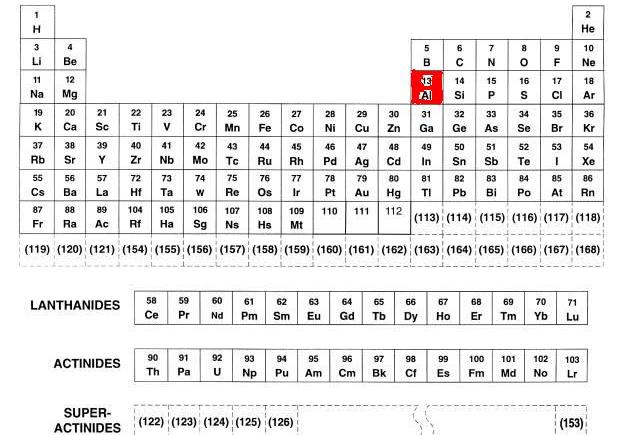Continuing the themes of the last two days, pronunciation and names, I want to shift focus slightly from issues with pronunciation in a second language, to those native English speakers have with their own tongue. If you search for something like “most annoying mispronunciations,” you’ll find plenty of people venting their frustration. Sometimes, it’s understandable. As I’ve mentioned before, we seem to have an inbuilt resistance to anyone using language differently from us, regardless of which one of us, if either is correct. Other times though, it says more about the person complaining. Here are some of the more common complaints:
aluminum, as opposed to aluminium: Naturally, I only come across this from people outside North America, and of course, it’s not actually a mispronunciation at all, just a difference between dialects. But some people can be dismissive of aluminum, as it’s not the original pronunciation, and therefore seen as the obnoxious upstart. Which I find a bit absurd. What’s wrong with pronouncing something differently, and how often does one talk about aluminium anyway?
idear: this can be found in America and England, and I always have a suspicion that a dislike of this pronunciation might be simple snobbery, in some cases, as it’s often portrayed as commonly used by poorer or less-educated people. I think it originates in people with non-rhotic accents adding the r at the end of the word to link it to a following word beginning with a vowel sound.
pacific instead of specific: ok, this one I understand, as they are two separate words. Still, I have some sympathy, as I actually find the s in specific quite hard to say, and have to make an effort to get it out.
expresso: again, I get how it sounds annoying, but espr… isn’t a sound that comes naturally to a lot of English speakers, and of course lots of people’s instincts make them think of the word express, so expresso is much easier to say.
pronounciation instead of pronunciation: this is when you start to think the language is just trolling us. The verb is pronounce, so why not pronounciation? It’s quite ironic that pronunciation is quite hard to pronounce.
athelete: I think this just nitpicking. It’s actually quite tricky to naturally pronounce athlete, with two syllables, so it’s natural to add a little schwa between the h and l to join the two main syllables.
I could go on, but I won’t, because I just get annoyed by nitpicking. It always amazes me how people get so worked up about mispronunciation, especially when they so rarely have any negative effect. I guess it’s just an easy way to feel superior to others. Still, I’m often surprised by how militant seemingly calm and rational people get about people pronouncing things differently. Especially when people complain about a pronunciation that’s actually correct. In browsing for examples of annoying pronunciations other than the ones in my head, I came across an article claiming to correct a large number of common mispronunciations. Some I had no argument with, some were nitpicking, and then I saw the author say that forte is often mispronounced, and should be pronounced identically to fort. Now this was the original pronunciation, as the word comes from the old French forte, with a silent e, but the word (probably being confused with the Italian musical term forte) is now generally pronounced as two syllables. That’s not to say anyone using the old pronunciation is wrong. But dismissing the word as most people pronounce it is ignoring how English is actually used, in favour of a now out-of-fashion pronunciation simply because that was how it was first pronounced.
And then of course there’s Moët. I’m sure that like me, you like to relax of an evening with a nice glass of Moët & Chandon. Some people like to show off their sophistication and knowledge by declaring that the correct pronunciation of the first word is Mo-AY, as it’s French, don’t you know? Except of course that Moët is a Dutch name, and is pronounced as it looks, t and all, regardless of how “unsophisticated” that might sound.
In fact, surnames are one area where native speakers often disagree most strongly about pronunciation, something I think I’ll look at it tomorrow.
For now, what are some mispronunciations you’re not fond of, or that you’re guilty of committing?


“…then I saw the author say that forte is often mispronounced, and should be pronounced identically to fort.” I’ve always pronounced it fort (no e sound) but I get corrected all the time. Think I read a line in a detective novel where they insisted on “fort” and adopted it to be pretentious but I can’t remember now. ~~dru~~
LikeLiked by 1 person
I’m not surprised people “correct” you, but you can take solace in the fact that both pronunciations are correct, though you’re probably in the minority now.
LikeLike
The one I have issue with is ‘expresso’, when it is thusly pronounced by a café employee. An exchange I invariably have when ordering a takeaway coffee:
“Double espresso please.”
“Double expresso yes?”
[inward sigh] “Yes, thank you.”
It’s your job, can’t you say it correctly?!
LikeLiked by 1 person
That’s inexcusable in someone working in a café. Do they not actually see the word multiple times every day!?
LikeLike
Precisely. I judge cafés by coffee-quality, ambience, lack of self-absorbed hipsters on iPads, and the ability of the staff to know the correct names for their products.
LikeLiked by 2 people
Long time ago, but possibly relevant: https://www.deseretnews.com/article/737389/FedEx-fails-in-bid-against-Ex-Federal-Espresso.html
LikeLiked by 1 person
That always grates for me as well, it just doesn’t sound natural, despite its similarity to ‘express.’
LikeLike
The other periodical annoyance: sul[f/ph]ur. At least that one is the same in sound!
LikeLiked by 1 person